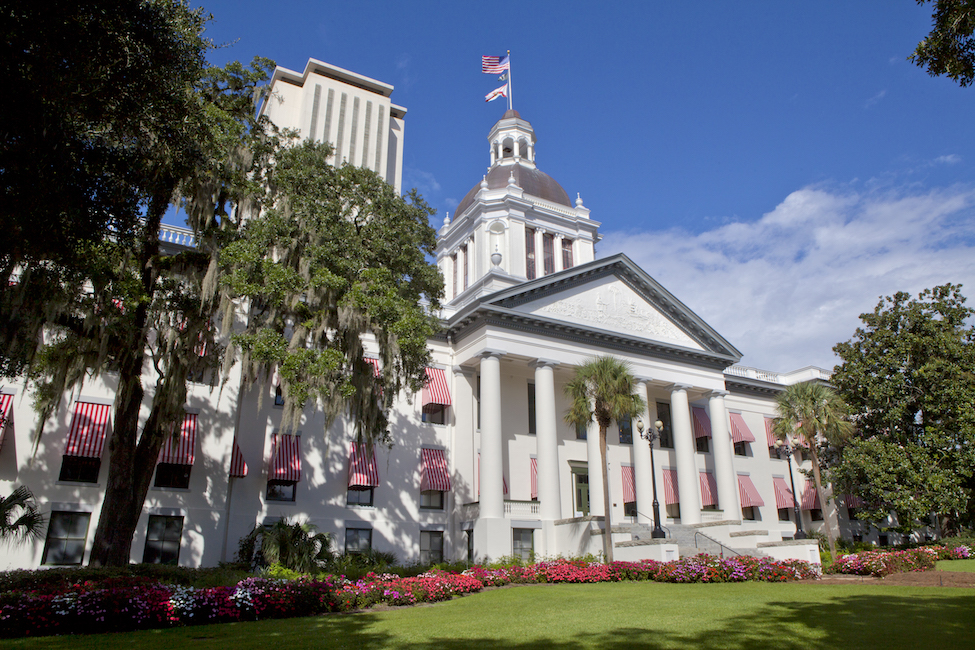DeSantis and Putnam Tied, Graham Leads Pack in Governor Race

Florida Gov. Rick Scott has increased his lead to six points over U.S. Sen. Bill Nelson in the U.S. Senate race, 45 to 39 percent, with 16 percent still undecided.
Less than a week before the primary election to determine who will be the Democratic and Republican candidates for Florida’s next governor, Ron DeSantis and Adam Putnam are in a statistical tie on the Republican side and Gwen Graham has opened up a 12-point lead on Philip Levine among the Democrats, according to the statewide survey by the Florida Atlantic University Business and Economics Polling Initiative (FAU BEPI).
On the Republican side of the race for governor, DeSantis has seen his lead drop from nine points less than one month ago to only one point over Putnam, 32 to 31 percent, with 22 percent undecided. The margin of error for likely voters in the Republican primary is +/- 6.5 percentage points.
“Adam Putnam appears to have regained some of his footing in the gubernatorial race,” said Kevin Wagner, Ph.D., professor of political science at FAU and a research fellow of the Initiative. “The difference may be which candidate is better able to turnout their supporters in the next week.”
Among the Democratic candidates, Graham now leads Levine, 29 to 17 percent, after leading him by only four points in July. Jeff Greene and Andrew Gillum are tied for third at 11 percent each, followed by Christopher King at 10 percent, with 19 percent undecided. The margin of error for likely voters in the Democratic primary is +/- 6.3 percentage points.
“One factor driving Graham’s lead is her support among females,” said Monica Escaleras, Ph.D., director of the BEPI. “As the only female candidate, she leads the field with 32 percent of the female vote. Males also support her, but to a lesser degree at 25 percent.”
Florida Gov. Rick Scott has increased his lead to six points over U.S. Sen. Bill Nelson in the U.S. Senate race, 45 to 39 percent, with 16 percent still undecided. Scott led Nelson by four points, 44-40 percent, in July’s BEPI poll. Among Independent voters, Scott leads Nelson 44 to 25 percent. Scott has a 48 percent approval rating and 33 percent disapproval rating. Nelson has a 35 percent approval rating and a 36 percent disapproval rating.
U.S. President Donald Trump had a two-point increase in his approval rating, which is at 43 percent, tied for his highest approval rating among Florida voters since taking office. Trump’s approval rating is at 80 percent among Republican primary voters, but his disapproval rating is at 45 percent among all voters.
A majority of voters (56 percent) said they were very concerned about the physical safety of students at schools and 60 percent think gun laws should be stricter. Gun control policy, however, ranked fourth among the most important issues to voters in the upcoming primary election. Top issues for voters in the survey remain immigration (27 percent) and healthcare (25 percent), followed by the economy (14 percent) and gun control policy (12 percent).
Party breakdown among the survey respondents was 35 percent Democrats, 33 percent Republicans and 32 percent Independents.
The survey was conducted Aug. 16-20 and polled 800 Florida registered voters who said they are likely to vote. The survey was conducted using an online sample supplied by Survey Sampling International using online questionnaires and via an automated telephone platform (IVR) using registered voter lists supplied by Aristotle, Inc. The survey has a margin of error of +/- 3.4 percentage points. Responses for the entire sample were weighted to reflect the statewide distribution of the Florida population. The polling results and full cross-tabulations are available at www.business.fau.edu/bepi.
-FAU-
Tags: students | business | faculty and staff